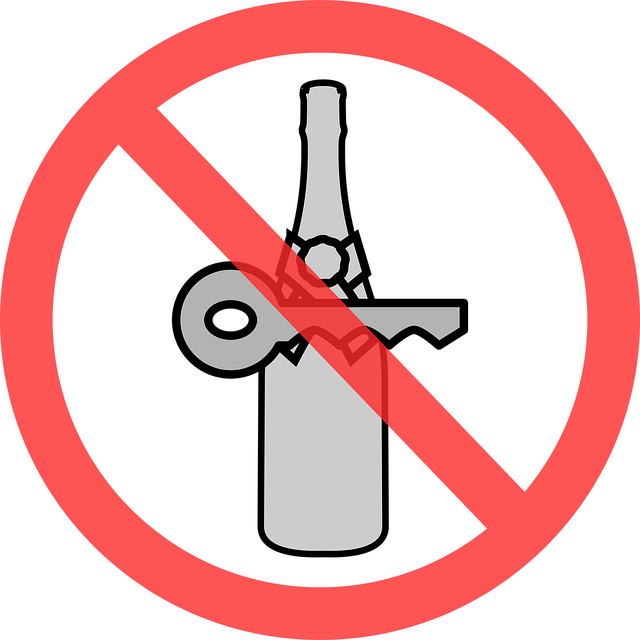Knowing your rights during a traffic stop is crucial for safety and legality. While officers need reasonable suspicion, you have the right to remain silent and calm. Arrange alternative transportation like ride-sharing or public transit to reduce stress and protect your autonomy. Document stops with notes or recordings, noting details like officer info, reasons, and interactions. Avoid agreeing to searches without a warrant; assert your rights firmly yet politely. Use Alternative Transportation Options beforehand to minimize issues during stops and safeguard your legal protections.
Traffic stops can be stressful, but understanding your rights is key. This guide equips you with essential knowledge for navigating these situations. Learn about your legal protections during traffic stops and discover practical steps like documenting interactions and knowing when to stay or leave. Additionally, explore alternative transportation options to ensure safe and lawful mobility. By arming yourself with this information, you can confidently exercise your rights and make informed decisions on the road.
- Understanding Your Rights During Traffic Stops
- Knowing When to Remain or Leave the Scene
- Alternative Transportation: Options to Consider
- Documenting Interactions with Law Enforcement
- Legal Protections and Common Mistakes to Avoid
Understanding Your Rights During Traffic Stops

During a traffic stop, it’s crucial to know your rights to ensure a safe and lawful encounter. In many jurisdictions, officers must have a reasonable suspicion of criminal activity or a valid reason for stopping your vehicle, such as a broken tail light. You have the right to remain calm and politely assert your constitutional protections against self-incrimination, often invoking your right to remain silent.
While you await processing, consider alternative transportation options if you’re not under arrest. If possible, arrange for a friend or family member to pick you up, use public transit, or contact a ride-sharing service. This proactive approach can help reduce stress and ensure you comply with the law while protecting your rights during the traffic stop.
Knowing When to Remain or Leave the Scene

If you’re involved in a traffic stop, it’s crucial to know when to remain and when to leave the scene. While it’s generally advisable to stay until the interaction is complete, there are instances where alternative transportation options may be necessary or preferable. If you feel unsafe or believe your rights are being violated, it’s perfectly acceptable to politely decline further discussion and request a written notice of the citation or reason for the stop. Always remember that you have the right to remain silent—choosing not to answer questions can protect you from self-incrimination.
If circumstances allow, consider arranging alternative transportation options beforehand. This could include having a friend or family member nearby who can pick you up, using ride-sharing services, or utilizing public transit. Having these alternatives prepared shows prudence and responsibility, demonstrating your willingness to cooperate while also protecting your autonomy during the traffic stop.
Alternative Transportation: Options to Consider

If you find yourself on the receiving end of a traffic stop, it’s crucial to know your rights—and one right that often gets overlooked is the option for alternative transportation. While it might seem convenient to accept an officer’s offer for a ride home or to simply wait for a friend or family member, there are several Alternative Transportation Options available to ensure your safety and independence.
These alternatives can range from ride-sharing services like Uber or Lyft to public transportation options such as buses and trains. Some communities also offer specialized programs or non-profit services designed to assist individuals who may not have access to traditional modes of transport. Considering these options not only empowers you with knowledge but also enables you to make informed decisions during a traffic stop, ensuring your safety and peace of mind.
Documenting Interactions with Law Enforcement

During a traffic stop, it’s crucial to document your interactions with law enforcement for your own protection and to ensure accuracy in case of any discrepancies. Take notes or record the conversation (with the officer’s consent) while being polite and respectful throughout. Note down details like the date, time, location, and any unique identifiers about the officer, such as their badge number or name. Also, document the reason for the stop, the questions asked, and any promises or threats made.
Having these records can be invaluable if you face charges later, enabling you to challenge evidence and understand your rights better. Moreover, documenting interactions with law enforcement empowers individuals to know when to seek alternative transportation options should they feel unsafe or uncomfortable during a stop. Always remember that you have the right to remain silent and to refuse searches unless a warrant has been shown.
Legal Protections and Common Mistakes to Avoid

Understanding your rights during a traffic stop is crucial for ensuring fairness and safety. In many jurisdictions, drivers have legal protections that guard against unreasonable searches and seizures. For instance, officers must have probable cause to detain or search your vehicle. You’re entitled to know what they’re looking for and why, and you can refuse consent for any search unless it’s explicitly required by law.
Avoiding common mistakes can help safeguard these rights. Don’t agree to searches voluntarily without understanding the implications; remain calm but assertive. If you believe your rights are being violated, politely but firmly communicate this to the officer. Remember, you have a right to an attorney if arrested and to refuse to answer questions that might incriminate you. Consider using alternative transportation options beforehand if you anticipate potential issues during a stop.
Knowing your rights during traffic stops is an essential step in protecting yourself from potential legal issues. By understanding when to remain or leave the scene, using alternative transportation options (Alternative Transportation Options), and documenting interactions with law enforcement, you can ensure a safer and more informed experience. Remember, awareness and preparation can go a long way in navigating these situations effectively while avoiding common mistakes that may harm your case.






